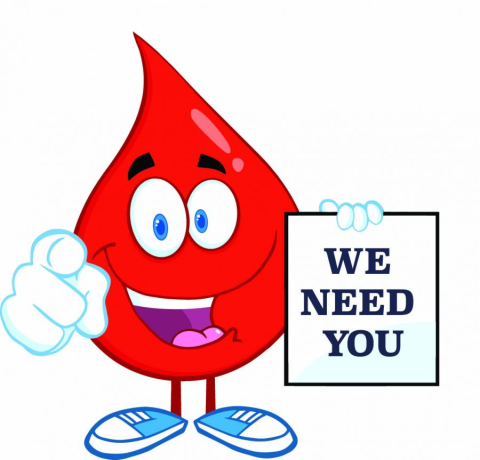
Blood Donor Services

Giving blood is the most generous act of kindness that one human being can do for another. When you give blood, you save lives. Blood is used for accident victims, newborn babies and their mothers who need a transfusion, people undergoing surgery, patients receiving treatment for cancer and other diseases. You never know when you may need blood, or when someone you love may need it. Donating regularly can help ensure that our community is never short on blood.
Can I donate blood?
To be eligible to donate blood, a person must be at least 17 years of age, be in good health, weigh at least 110 pounds, have not donated in the past eight weeks, and is not currently taking antibiotics or insulin (only if of a “bovine” nature).
Please note: Our 17-year-old donors must weigh at least 130 pounds.
Call 908-788-6405 to schedule an appointment.
Frequently Asked Questions
You will be asked about your medical history and current health. Your temperature, blood pressure, pulse, and blood iron level will be checked.
You will feel a slight pinch. After you donate, you can resume your usual routine.
You can only give a pint. This isn’t very much when you consider you have 8 to 11 pints in your body.
Absolutely not. All the equipment and materials used during the donating process are sterile and used only once. You cannot get AIDS or any other diseases from donating blood.
At the Blood Bank at the Hunterdon Medical Center. For more information about how you can donate blood, please call Hunterdon Medical Center’s Blood Donor Service at (908)-788-6405.
Yes. Deferral for most drugs is based on the nature of the underlying condition. Acceptable medications – which do not have an impact on donating blood – include antihypertensives (taken to control high blood pressure); oral contraceptives; hormone replacement therapy (HRT); aspirin, vitamins, etc.
There is a 48-hour deferral after completing a course of antibiotics.
Check with our Blood Bank staff about your medications.
Allergies, cold or flu: Defer until symptom-free.
Recent Body Piercings and Tattoos: Defer for 3 months.
Note exception: No deferral for the following for New Jersey establishments ONLY: Ear or body piercing or acupuncture performed by the aseptic technique in a medically supervised setting with disposable needles and no sign of infection is acceptable with a letter from the establishment where the procedure was performed.
If you have received blood or blood products: Defer for one year.
Pregnancy: Defer for six weeks following delivery or termination.
Surgery: Defer until discharged by physician/surgeon; ask for permission. A donor must feel well and be able to resume full activity.
Skin Cancer: (squamous or basal cell carcinoma) Acceptable if surgically removed and healed.
Travel to Malarial Area: (with or without medications) Defer for 3 months.
Lived in a Malarial Area: Defer for three years.
Immunization for Smallpox: Wait until the scab separates spontaneously or for 14 days after the vaccination, whichever is the later date. If you experience complications, wait for 14 days after they are resolved.
Immunization for Flu: No deferral time.
Immunization for COVID-19: 48 hours.
Immunization for Pneumonia: Defer for two weeks.
Immunization for Hepatitis B: Defer for 24 hours, no deferral if symptom-free and afebrile.
Accutane or Propecia: Defer for 1 month.
Cancer: (other than localized skin cancer) Defer, pending approval of Medical Director, if you have been cancer-free for 1 year.
Leukemia: You cannot donate blood.
Heart Disease: Defer pending approval of a physician.
Tooth Extraction or Root Canal: Defer for 72 hours after the procedure or until completely healed.
Immunization for Lyme Disease: Defer for 24 hours.